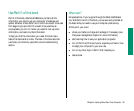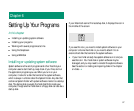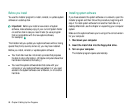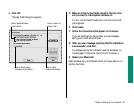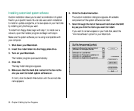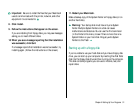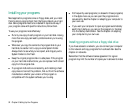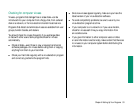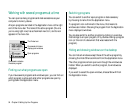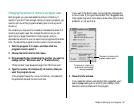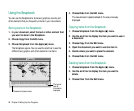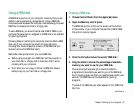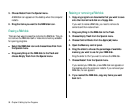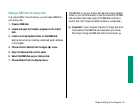
Checking for computer viruses
Viruses—programs that damage files or erase disks—can be
introduced into your computer from a floppy disk, from a shared
disk on a network, or from an electronic bulletin board service.
Programs that detect and eliminate viruses are available from user
groups, bulletin boards, and dealers.
You should check for viruses frequently if you exchange disks
or data with other users. Some programs check for viruses
automatically.
m Check all disks—even those in new, unopened commercial
software packages—for viruses before using them or copying
anything from them to your hard disk.
m Check your hard disk regularly with a virus-detection program
and correct any problems the program finds.
m Since new viruses appear regularly, make sure you have the
latest version of your virus-detection software.
m To avoid compatibility problems, be sure to use only one
virus-detection program at a time.
m If your computer is on a network or if you use a modem,
check for viruses each time you copy information from
an outside source.
m If you give information to other computer users on disks
or send information electronically, make certain that there are
no viruses on your computer system before distributing the
information.
Chapter 6: Setting Up Your Programs 93



